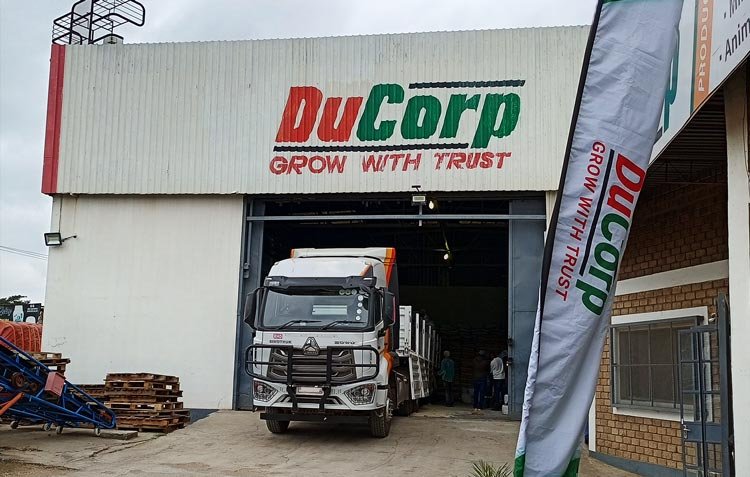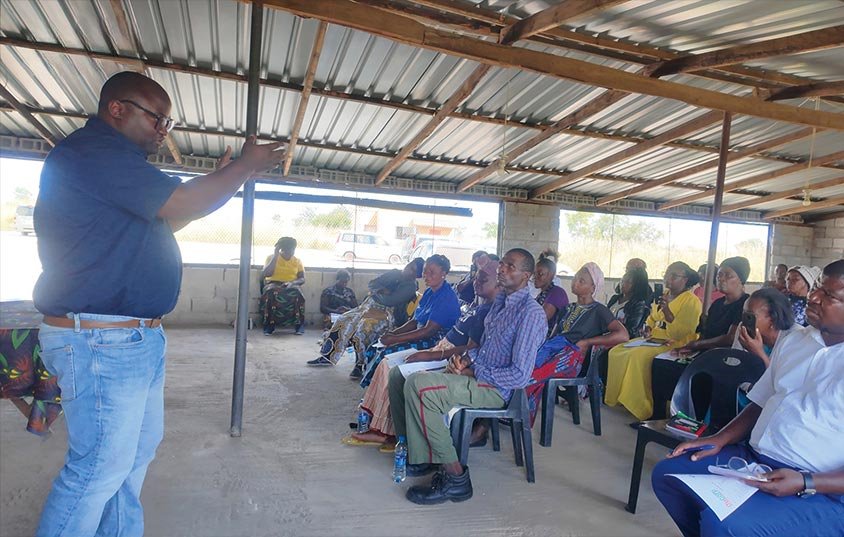Driving Agricultural Excellence
SOLUTIONS

Services
1. Formular service
Ducorp Zambia Limited, we are customized to create nutritional plans or mixtures for animal feeds. This includes ruminant and monogastric animals, which involve selecting the right ingredients in the right proportions to meet the specific dietary needs of different animals at their different stages of growth, based on their age, weight, purpose and health status.
2. Technical Service
we provide expert technical support and guidance to different farmers in relation to animal production, nutrition and health. This is achieved through onsite farm visits, consultion services and farmers training where our expert technical team advises farmers on feeding systems, livestock management and health.
3. After-Sales Service
This is the support provided to customers after purchasing our products. This includes customer care, responding to complaints, monitoring product performance and offering technical support.
4. Customized Service
As Ducorp Zambia Limited, we do not only have one specific feed formulation, we are able to tailor different formulation based on creating personalized feed formulas, adapting delivery schedules and solutions based on a farm’s size, species and production goals. This is customised in order to meet individual clients’ needs.
5. Deliver to Door Service
This refers to the direct delivery of products to the customer’s location. It ensures convenience for customers, saving them time and effort, especially for bulk or heavy items like animal feed.

Sustainability
1. Free Training
Free farm, feed formulation and management training are conducted in order to enhance capacity building. This helps farmers to learn modern technology, efficient, and sustainable livestock practices to improve productivity and animal welfare .
2. Help on Selling
We offer market Access Support by assisting farmers in selling their products through digital platforms, cooperative marketing and linkages with reliable buyers to ensure fair prices and reduce post-production losses of their products.
3. Flexible solution Practical Problem Solving: Provide flexible, tailored solutions to farmers’ daily challenges such as disease management, housing, feeding strategies, and record-keeping through consultancy or extension services.
4. Save Cost Reduction Strategies:
Help farmers reduce production costs by introducing: Affordable and balanced feed alternatives (e.g., premixes, concentrates and locally sourced ingredients). Efficient housing and waste management practices. Proper feeding schedules and health programs for broilers, layers, pigs, and dairy animals to enhance feed conversion and reduce losses.

Sustainability
1. Free Training
Free farm, feed formulation and management training are conducted in order to enhance capacity building. This helps farmers to learn modern technology, efficient, and sustainable livestock practices to improve productivity and animal welfare .
2. Help on Selling
We offer market Access Support by assisting farmers in selling their products through digital platforms, cooperative marketing and linkages with reliable buyers to ensure fair prices and reduce post-production losses of their products.
3. Flexible solution Practical Problem Solving
Provide flexible, tailored solutions to farmers’ daily challenges such as disease management, housing, feeding strategies, and record-keeping through consultancy or extension services.
4. Save Cost Reduction Strategies
Help farmers reduce production costs by introducing: Affordable and balanced feed alternatives (e.g., premixes, concentrates and locally sourced ingredients). Efficient housing and waste management practices. Proper feeding schedules and health programs for broilers, layers, pigs, and dairy animals to enhance feed conversion and reduce losses.

Quality
1. Source of Feed Raw Materials and Additives
The raw materials (maize, soybean meal, wheat bran,) and feed additives (such as vitamins, minerals, enzymes, sodium bicarbonate,) are directly obtained from manufacturers.This reduces reliance on middlemen, potentially lowering costs and increasing control over quality, hence, ensuring transparency and traceability of the origin of materials that can lead to fresher, more consistent supplies and better long-term supplier relationships.
2. Selected Sources of Raw Materials
Suppliers are carefully chosen based on quality, consistency, reputation, and compliance with safety standards ensuring only high-quality, reliable ingredients are used in feed formulation. Selection is based on physical inspection and lab test analysis results minimizing the risk of contamination and variability in feed quality.
3. Regular Sample Lab Tests
All samples of raw materials and finished feeds undergo laboratory analysis. Tests commonly check for nutritional content , contaminants and additive concentrations, ensuring compliance with regulatory standards and maintaining product quality.
4. Site Inspection
Physical visits to supplier and production sites to evaluate conditions, processes, and compliance. This includes checking cleanliness, storage facilities, production practices, and worker hygiene, which builds confidence in suppliers and identifies potential risks or areas for improvement.
